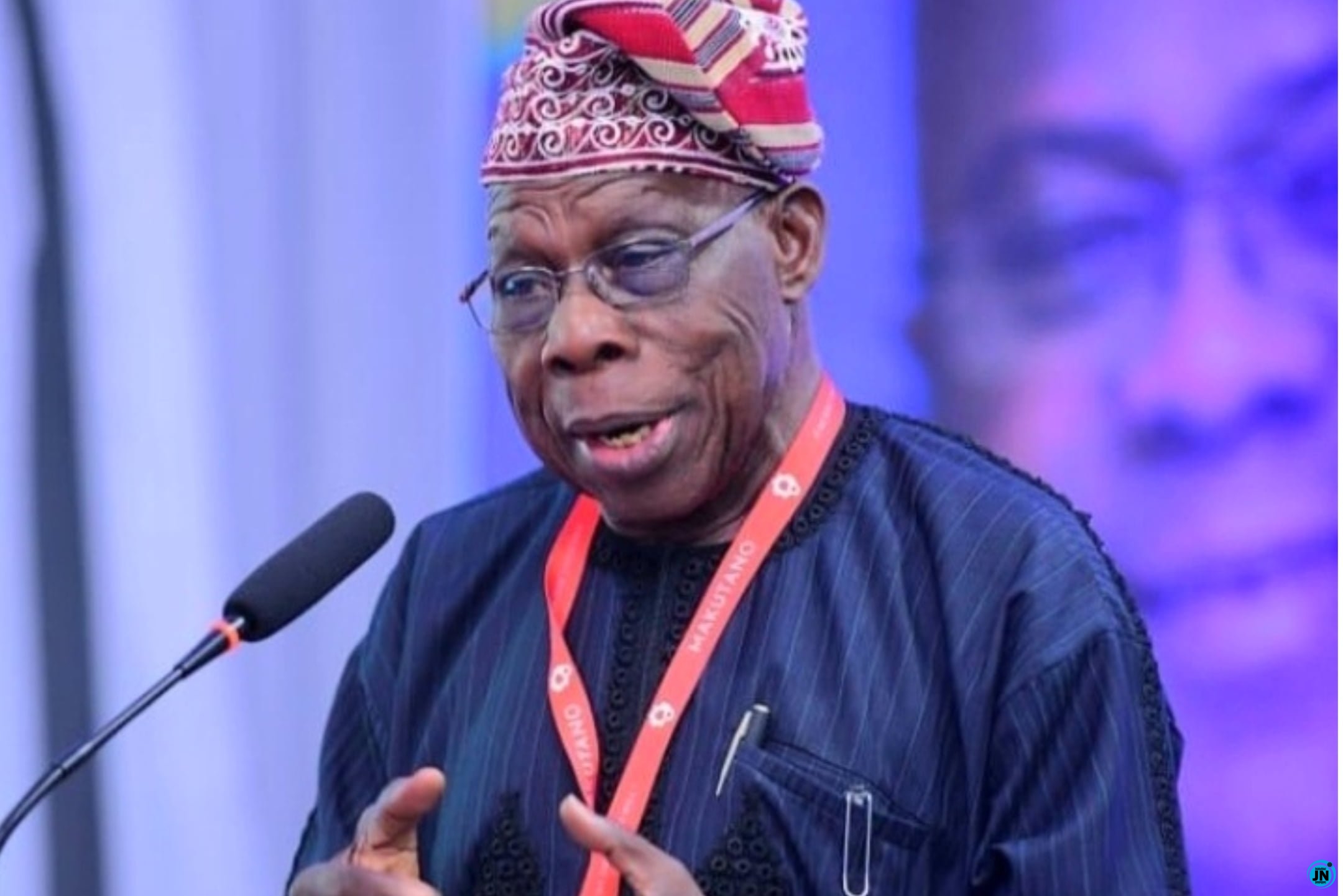Former President of Nigeria, Olusegun Obasanjo, has shed more light on the reasons behind his imprisonment during General Sanni Abacha’s military regime.
In his words, the former President explained that his incarceration was a direct result of his refusal to remain silent on critical issues, both locally and internationally. He openly criticized decisions and policies he believed were detrimental, a stance that led to his imprisonment during the turbulent period of Abacha’s rule.

Obasanjo shared this insight during an interactive session with 15 young male and female future African leaders at his renowned Olusegun Obasanjo Presidential Library (OOPL) in Abeokuta, Ogun state. He used the opportunity to provide these young leaders with valuable lessons from his own life and experiences.
Speaking further, the former President highlighted the historical context of African leadership, emphasizing how, in the past, African leaders were often selected and controlled by external forces from other continents. He revealed that his decision to contest for the Nigerian presidency in 1999 was largely fueled by his determination to put an end to this practice and advocate for true African autonomy in leadership.
Reflecting on the challenges he faced, Obasanjo recounted how his refusal to remain silent on matters of national and international importance led to his imprisonment. He stated:
“Going into prison is really a challenge because I refused to keep quiet. For me, if there is anything to comment on, I did comment on them, and so, I landed in prison, and that is a challenge. And, when I came out from prison, the situation was bad in the country that some people felt the need to be saved and pressure started coming.”
The former President’s revelations offer a glimpse into the sacrifices he made and the risks he took in his pursuit of better governance and the upliftment of Africa's leadership standards.



